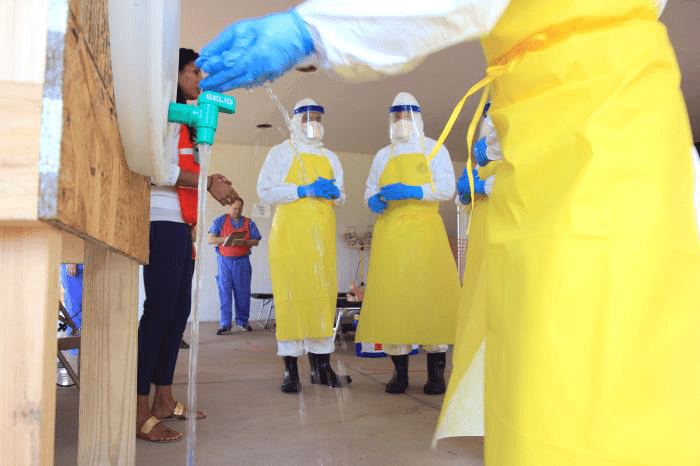The U.S. Department of Health and Human Services has selected nine health departments and associated partner hospitals to become special regional treatment centers for patients with Ebola or other severe, highly infectious diseases.
HHS’ Office of the Assistant Secretary for Preparedness and Response (ASPR) has awarded approximately $20 million through its Hospital Preparedness Program (HPP) to enhance the regional treatment centers’ capabilities to care for patients with Ebola or other highly infectious diseases. ASPR will provide an additional $9 million to these recipients in the subsequent four years to sustain their readiness.
The nine awardees and their partner hospitals are:
- Washington State Department of Health in partnership with Providence Sacred Heart Medical Center and Children’s Hospital in Spokane, Washington
- Nebraska Department of Health and Human Services in partnership with Nebraska Medicine – Nebraska Medical Center in Omaha, Nebraska
- Texas Department of State Health Services in partnership with the University of Texas Medical Branch at Galveston in Galveston, Texas
- Massachusetts Department of Public Health in partnership with Massachusetts General Hospital in Boston, Massachusetts
- New York City Department of Health and Mental Hygiene in partnership with New York City Health and Hospitals Corporation/HHC Bellevue Hospital Center in New York City
- Maryland Department of Health and Mental Hygiene in partnership with Johns Hopkins Hospital in Baltimore, Maryland
- Georgia Department of Public Health in partnership with Emory University Hospital and Children’s Healthcare of Atlanta/Egleston Children’s Hospital in Atlanta, Georgia
- Minnesota Department of Health in partnership with the University of Minnesota Medical Center in Minneapolis, Minnesota
- Colorado Department of Public Health and Environment in partnership with Denver Health Medical Center in Denver, Colorado
Each awardee will receive approximately $3.25 million over the full five-year project period. This funding is part of $339.5 million in emergency funding Congress appropriated to enhance state and local public health and health care system preparedness following cases of Ebola in the United States stemming from the 2014 Ebola epidemic in West Africa.
The facilities will be continuously ready and available to care for a patient with Ebola or another severe, highly infectious disease, whether the patient is medically evacuated from overseas or is diagnosed within the United States.
“This approach recognizes that being ready to treat severe, highly infectious diseases, including Ebola, is vital to our nation’s health security,” said Dr. Nicole Lurie, HHS assistant secretary for preparedness and response. “This added regional capability increases our domestic preparedness posture to protect the public’s health.”
The regional facilities are part of a national network of 55 Ebola treatment centers, but will have enhanced capabilities to treat a patient with confirmed Ebola or other highly infectious disease. Even with the establishment of the nine regional facilities, the other 46 Ebola treatment centers and their associated health departments will remain ready and may be called upon to handle one or more simultaneous clusters of patients.
The facilities selected to serve as regional Ebola treatment centers will be required to:
- Accept patients within eight hours of being notified
- Have the capacity to treat at least two Ebola patients at the same time
- Have respiratory infectious disease isolation capacity or negative pressure rooms for at least 10 patients
- Conduct quarterly trainings and exercises
- Be able to treat pediatric patients with Ebola or other infectious diseases or partner with a neighboring facility to do so
- Be able to safely handle Ebola-contaminated or other highly contaminated infectious waste
To be eligible for consideration as an Ebola and other special pathogen treatment center, facilities also had to be assessed by a Rapid Ebola Preparedness team led by the CDC.
A soon-to-be-established National Ebola Training and Education Center will conduct annual readiness assessments at these health care facilities to ensure clinical staff is adequately prepared and trained to safely treat patients with Ebola and other infectious diseases
HHS is additionally is working with state health officials and hospital executives in HHS Region IX, which includes Arizona, California, Hawaii, Nevada and the Pacific island territories and freely associated states, to identify a partner hospital awardee.



